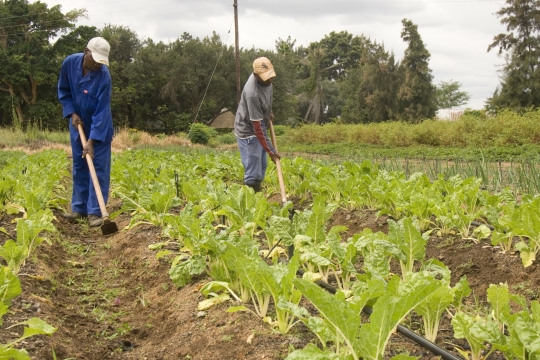Smallholder farmers in Tanzania, who have seen how climate change has altered rainfall patterns and pushed up temperatures, are adapting their farming methods to meet these shifting conditions. This presents an opportunity for the government there to tailor its policies to help farmers meet future farming challenges.
These are the findings of a study published recently in an Environment for Development series of discussion papers, this one written by resource economists Dr Coretha Komba and Prof Edwin Muchapondwa with the Environmental Policy Research Unit (EPRU) at the School of Economics, University of Cape Town.
Komba visited over 500 families across Tanzania’s seven agri-ecological zones in late-2010, to see if they were noticing climatic changes in their region over the previous two decades, and if they were responding to this by adapting their farming methods.
She found that those who picked up rainfall pattern shifts and increasing temperatures during the 1990s and 2000s, had begun to favour short-season and drought resistant crops. These farmers also appeared to be turning to irrigation, shifting their planting dates, and putting in trees as a way of absorbing the weather-related shocks which could hamper their agriculture yields.
Another thing her interviews with families picked up, is that the more educated the famers are, the better they were at adapting to these environmental changes.
‘These findings present an opportunity to the government of Tanzania,’ explains Prof Edwin Muchapondwa. ‘Its major role now is simply to assist farmers to overcome the constraints they face.’
The most significant constraints to thriving as farmers in these increasingly stressed conditions are a shortage of water, funds and seeds, and poor planning by farmers.
In addition to supporting farmers to access the infrastructure and input support they need, government could also invest in education as a way of boosting farmer adaptation and resilience.
Read the full paper here.
Prof Edwin Muchapondwa is the director of the University of Cape Town’s School of Economics and is a research fellow with the Environmental Policy Research Unit (EPRU).
Dr Coretha Komba is also a fellow of the EPRU.
